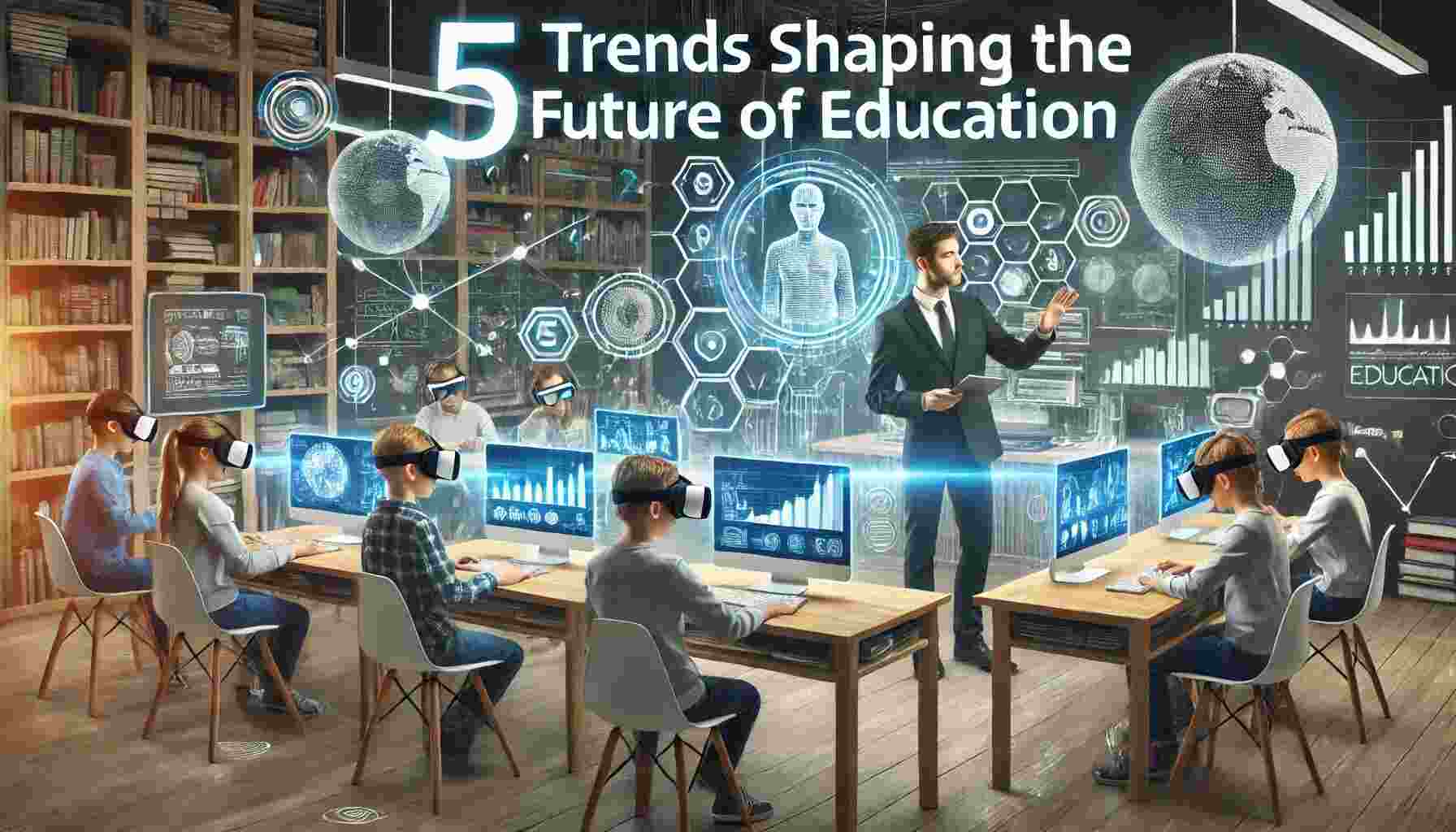The Future of Education Shows Five Significant Transformations
Education undergoes substantial transformation because of both technological advancements at rapid speeds and changing student learning requirements. These five major developments propel the education sector toward its new direction:
1. Personalized Learning Powered by AI
Artificial Intelligence modifies educational methods by producing customized learning material for every student’s unique requirements. Educational platforms which adapt their content follow student information to create personalized materiel that assists their individual abilities while addressing their specific subject weaknesses. AI supports educational tasks so teachers can dedicate their time to valuable student-teacher interactions. The result? The educational process unfolds according to individual student schedules as they receive assistance at their appropriate level.
2. Through Hybrid Learning and Expanding Digital Access students can gain education through blended face-to-face and virtual learning experiences.
Hybrid education combines classroom instruction with online coursework which allows students to learn across multiple locations in new ways. The adaptable format lets students reach high-quality learning resources outside traditional educational spaces. Through virtual classrooms and collaborative apps education delivery experiences significant shifts which enable worldwide student enrollment opportunities.
3. Gamified learning through interactive systems works alongside immersive technology to enhance education.
Education becomes more playful and practical through gamification systems and tools that employ both Virtual Reality and Augmented Reality. Through their virtual lab experiences and 3D explorations of ancient civilizations students build knowledge through active involvement. Educational tools implement challenges alongside rewards along with simulations to create engaging lessons that stick in students’ minds and boost motivation.
4. Modern education puts tangible skills at the forefront alongside ongoing learning opportunities.
The modification of work environments leads to corresponding changes in educational priorities. Education no longer centers on degree acquisition because learners choose skill-centric programs such as micro-credentials and boot camps and short courses. Lifelong learning has become essential to develop skills that keep individuals competitive against today’s fast-paced working environment.
5. The educational system actively works to foster students’ emotional health and psychological development.
Academic learning no longer defines education as institutions place greater value on emotional student health. Through Social-Emotional Learning programs students can develop empathy together with resilience while also developing communication abilities. Education institutions continue their advancement in mental health service delivery by establishing supportive environments which ensure students experience safety while receiving understanding and empowerment.
Final Thoughts
Both smarter and learner-centered education models along with inclusivity are transforming the future direction of learning. The next generation of learning emerges from technology-enhanced personalized education supported by adaptive learning models that focus on developing skills alongside student wellbeing.
